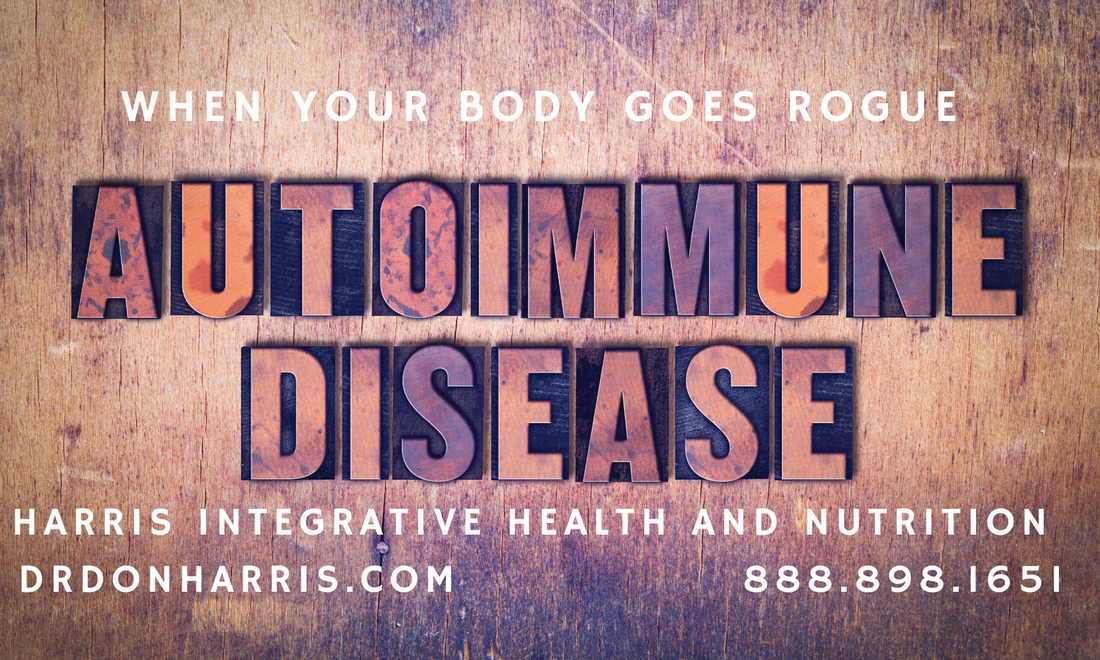|
Autoimmune Diseases: Types, Symptoms, Causes, and More What is an autoimmune disease?
An autoimmune disease is a condition in which your immune system mistakenly attacks your body. The immune system normally guards against germs like bacteria and viruses. When it senses these foreign invaders, it sends out an army of fighter cells to attack them. Normally, the immune system can tell the difference between foreign cells and your own cells. In an autoimmune disease, the immune system mistakes part of your body, like your joints or skin, as foreign. It releases proteins called autoantibodies that attack healthy cells. Some autoimmune diseases target only one organ. Type 1 diabetes damages the pancreas. Other diseases, like systemic lupus erythematosus (SLE), affect the whole body. Why does the immune system attack the body? Doctors don’t know exactly what causes the immune-system misfire. Yet some people are more likely to get an autoimmune disease than others.According to a 2014 study, women get autoimmune diseases at a rate of about 2 to 1 compared to men — 6.4 percent of women vs. 2.7 percent of men. Often the disease starts during a woman’s childbearing years (ages 15 to 44).Some autoimmune diseases are more common in certain ethnic groups. For example, lupus affects more African-American and Hispanic people than Caucasians. Certain autoimmune diseases, like multiple sclerosis and lupus, run in families. Not every family member will necessarily have the same disease, but they inherit a susceptibility to an autoimmune condition.Because the incidence of autoimmune diseases is rising, researchers suspect environmental factors like infections and exposure to chemicals or solvents might also be involved.A “Western diet” is another suspected risk factor for developing an autoimmune disease. Eating high-fat, high-sugar, and highly processed foods is thought to be linked to inflammation, which might set off an immune response. However, this hasn’t been proven. A 2015 study focused on another theory called the hygiene hypothesis. Because of vaccines and antiseptics, children today aren’t exposed to as many germs as they were in the past. The lack of exposure could make their immune system prone to overreact to harmless substances. BOTTOM LINE: Researchers don’t know exactly what causes autoimmune diseases. Genetics, diet, infections, and exposure to chemicals might be involved. 14 common autoimmune diseases There are more than 80 different autoimmune diseases. Here are 14 of the most common ones. 1. Type 1 diabetes The pancreas produces the hormone insulin, which helps regulate blood sugar levels. In type 1 diabetes mellitus, the immune system attacks and destroys insulin-producing cells in the pancreas.High blood sugar results can lead to damage in the blood vessels, as well as organs like the heart, kidneys, eyes, and nerves. 2. Rheumatoid arthritis (RA) In rheumatoid arthritis (RA), the immune system attacks the joints. This attack causes redness, warmth, soreness, and stiffness in the joints. Unlike osteoarthritis, which commonly affects people as they get older, RA can start as early as your 30s or sooner. 3. Psoriasis/psoriatic arthritis Skin cells normally grow and then shed when they’re no longer needed. Psoriasis causes skin cells to multiply too quickly. The extra cells build up and form inflamed red patches, commonly with silver-white scales of plaque on the skin. Up to 30 percent of people with psoriasis also develop swelling, stiffness, and pain in their joints. This form of the disease is called psoriatic arthritis. 4. Multiple sclerosis Multiple sclerosis (MS) damages the myelin sheath, the protective coating that surrounds nerve cells, in your central nervous system. Damage to the myelin sheath slows the transmission speed of messages between your brain and spinal cord to and from the rest of your body. This damage can lead to symptoms like numbness, weakness, balance issues, and trouble walking. The disease comes in several forms that progress at different rates. According to a 2012 studyTrusted Source, about 50 percent of people with MS need help walking within 15 years after the disease starts. 5. Systemic lupus erythematosus (SLE) Although doctors in the 1800s first described lupus as a skin disease because of the rash it commonly produces, the systemic form, which is most the common, actually affects many organs, including the joints, kidneys, brain, and heart. Joint pain, fatigue, and rashes are among the most common symptoms. 6. Inflammatory bowel disease Inflammatory bowel disease (IBD) is a term used to describe conditions that cause inflammation in the lining of the intestinal wall. Each type of IBD affects a different part of the GI tract.
Addison’s disease affects the adrenal glands, which produce the hormones cortisol and aldosterone as well as androgen hormones. Having too little of cortisol can affect the way the body uses and stores carbohydrates and sugar (glucose). Deficiency of aldosterone will lead to sodium loss and excess potassium in the bloodstream.Symptoms include weakness, fatigue, weight loss, and low blood sugar. 8. Graves’ disease Graves’ disease attacks the thyroid gland in the neck, causing it to produce too much of its hormones. Thyroid hormones control the body’s energy usage, known as metabolism. Having too much of these hormones revs up your body’s activities, causing symptoms like nervousness, a fast heartbeat, heat intolerance, and weight loss.One potential symptom of this disease is bulging eyes, called exophthalmos. It can occur as a part of what is called Graves’ ophthalmopathy, which occurs in around 30 percent of those who have Graves’ disease, according to a 1993 studyTrusted Source. 9. Sjögren’s syndrome This condition attacks the glands that provide lubrication to the eyes and mouth. The hallmark symptoms of Sjögren’s syndrome are dry eyes and dry mouth, but it may also affect the joints or skin. 10. Hashimoto’s thyroiditis In Hashimoto’s thyroiditis, thyroid hormone production slows to a deficiency. Symptoms include weight gain, sensitivity to cold, fatigue, hair loss, and swelling of the thyroid (goiter). 11. Myasthenia gravis Myasthenia gravis affects nerve impulses that help the brain control the muscles. When the communication from nerves to muscles is impaired, signals can’t direct the muscles to contract. The most common symptom is muscle weakness that gets worse with activity and improves with rest. Often muscles that control eye movements, eyelid opening, swallowing, and facial movements are involved. 12. Autoimmune vasculitis Autoimmune vasculitis happens when the immune system attacks blood vessels. The inflammation that results narrows the arteries and veins, allowing less blood to flow through them. 13. Pernicious anemia This condition causes deficiency of a protein, made by stomach lining cells, known as intrinsic factor that is needed in order for the small intestine to absorb vitamin B-12 from food. Without enough of this vitamin, one will develop an anemia, and the body’s ability for proper DNA synthesis will be altered.Pernicious anemia is more common in older adults. According to a 2012 study, it affects 0.1 percent of people in general, but nearly 2 percent of people over age 60. 14. Celiac disease People with celiac disease can’t eat foods containing gluten, a protein found in wheat, rye, and other grain products. When gluten is in the small intestine, the immune system attacks this part of the gastrointestinal tract and causes inflammation.A 2015 studyTrusted Source noted that celiac disease affects about 1 percent of people in the United States. A larger number of people have reported gluten sensitivity, which isn’t an autoimmune disease, but can have similar symptoms like diarrhea and abdominal pain. Autoimmune disease symptoms The early symptoms of many autoimmune diseases are very similar, such as:
With autoimmune diseases like psoriasis or RA, symptoms may come and go. A period of symptoms is called a flare-up. A period when the symptoms go away is called remission. BOTTOM LINE: Symptoms like fatigue, muscle aches, swelling, and redness could be signs of an autoimmune disease. Symptoms might come and go over time. When to see a doctor See a doctor if you have symptoms of an autoimmune disease. You might need to visit a specialist, depending on the type of disease you have.
No single test can diagnose most autoimmune diseases. Your doctor will use a combination of tests and a review of your symptoms and physical examination to diagnose you. The antinuclear antibody test (ANA) is often one of the first tests that doctors use when symptoms suggest an autoimmune disease. A positive test means you may have one of these diseases, but it won’t confirm exactly which one you have or if you have one for sure. Other tests look for specific autoantibodies produced in certain autoimmune diseases. Your doctor might also do nonspecific tests to check for the inflammation these diseases produce in the body. BOTTOM LINE: A positive ANA blood test may be indicative of an autoimmune disease. Your doctor can use your symptoms and other tests to confirm the diagnosis. How are autoimmune diseases treated? Treatments can’t cure autoimmune diseases, but they can control the overactive immune response and bring down inflammation or at least reduce pain and inflammation. Drugs used to treat these conditions include:
Eating a well-balanced diet and getting regular exercise may also help you feel better. BOTTOM LINE: The main treatment for autoimmune diseases is with medications that bring down inflammation and calm the overactive immune response. Treatments can also help relieve symptoms. THE BOTTOM LINE More than 80 different autoimmune diseases exist. Often their symptoms overlap, making them hard to diagnose.Autoimmune diseases are more common in women, and they often run in families.Blood tests that look for autoantibodies can help doctors diagnose these conditions. Treatments include medications to calm the overactive immune response and bring down inflammation in the body. |
Archives
April 2022
Categories
All
|


 RSS Feed
RSS Feed